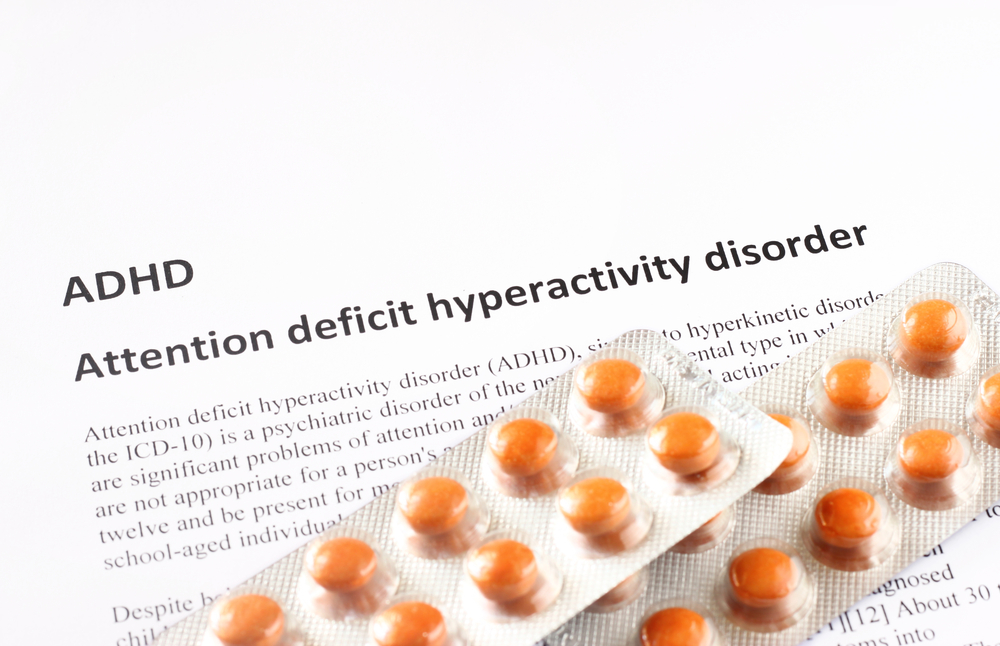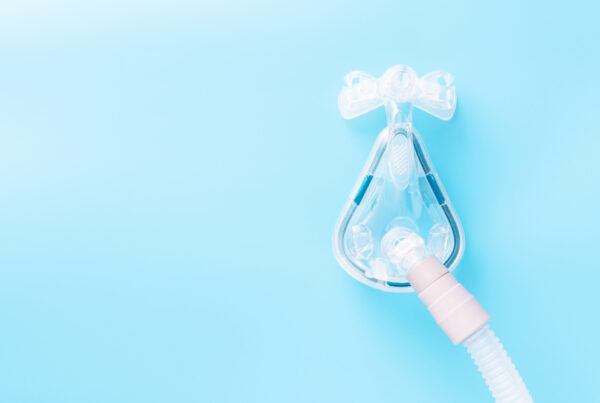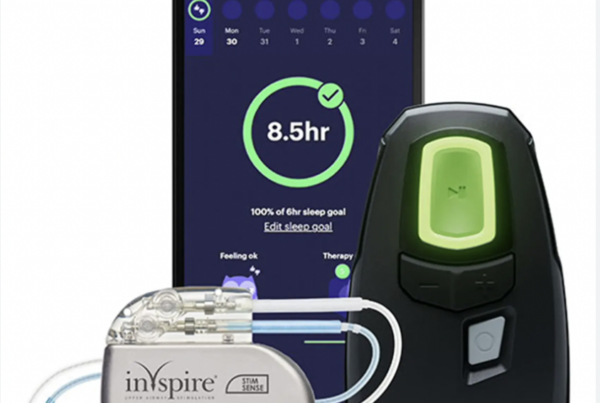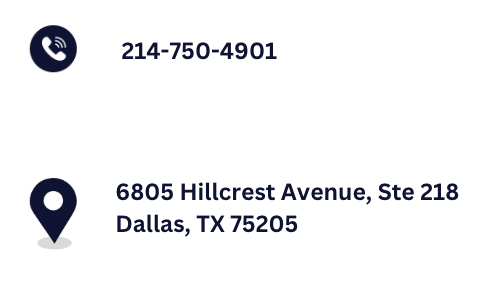Are you exploring ADHD therapy options in Dallas TX & University Park, TX? While genetics and brain chemistry are commonly blamed for ADHD and ADD, there’s a less obvious factor that might be impacting your child: their sleep and airway health.
Environmental influences and prenatal exposures are significant, but the role of sleep-related breathing disorders is often overlooked. Poor sleep quality and airway issues could be major contributors, if not the primary cause, of your child’s ADHD symptoms.
Understanding this connection highlights the daily challenges your child may face, such as difficulties with focus, impulse control, and stillness. These issues can affect their academic performance and erode their self-esteem, leading to frustration and hindering their path to success.
Many families are desperate for solutions that tackle these root causes, not just the symptoms. Dr. Drew Randall at Randall Dentistry is committed to addressing these fundamental issues, providing relief and a pathway to better health.
What Is ADHD?
Attention Deficit Hyperactivity Disorder (ADHD) is a neurological condition often first identified in childhood and can extend into adulthood. It manifests in distinct behaviors across several domains:
- Inattention: Children with ADHD may struggle to stay focused. They might miss details, get easily sidetracked, and not follow through on tasks.
- Hyperactivity: These kids often exhibit an abundance of energy. They may fidget, talk a lot, or find it hard to stay seated.
- Impulsivity: Quick, unplanned actions characterize this trait. Kids might interrupt others, make rash decisions, or take risks without thinking.
ADHD affects not just academic performance but also personal relationships and daily functioning. Diagnosis involves discussions with parents, teachers, and direct observation of the child’s behavior.
While traditional treatments include medication, behavioral therapy, and educational support, it’s crucial to consider early intervention. But what if there are additional underlying issues contributing to ADHD symptoms? Dr. Drew Randall at Randall Dentistry explores these possibilities, considering all factors that might influence the condition.
How ADHD Impacts Children and Parents
Living with ADHD can significantly challenge both children and their parents, affecting their academic, personal, and social lives. Here’s a look at the specific impacts:
For children:
- Focus Issues: Challenges in maintaining attention can make academic and extracurricular activities difficult.
- Impulsivity: This may lead to social conflicts and unsafe behaviors.
- Hyperactivity: Excess energy can disrupt quiet activities and family gatherings.
- Social Challenges: Difficulty with social cues can lead to isolation and troubled relationships.
- Emotional Regulation: Frequent emotional outbursts complicate feelings management.
- Low Self-Esteem: Frequent corrections and social challenges can erode confidence.
- Time Management: Organizational difficulties can result in missed assignments and chaotic schedules.
For parents:
- Emotional and Physical Drain: Constantly addressing their child’s needs can be taxing.
- System Navigation: Finding effective educational and medical support adds stress.
- Future Concerns: Worrying about their child’s well-being is a continuous strain.
- Financial Burden: Costs can accumulate, from healthcare to educational resources.
Understanding and support from adults are crucial in managing these challenges effectively. Dr. Drew Randall at Randall Dentistry understands these dynamics and provides comprehensive support for families dealing with ADHD.
Common ADHD Symptoms in Children
Is your child showing signs of ADHD? Here’s a breakdown of the two main types of symptoms to watch for:
Inattentive Symptoms: These symptoms affect focus and organization.
- Difficulty sustaining attention in tasks or play.
- Frequent careless mistakes in schoolwork or other activities.
- Often fails to finish schoolwork, chores, or other duties.
- Regularly loses tools necessary for tasks or activities.
- Appears not to listen when spoken to directly.
- Avoids or dislikes tasks that require sustained mental effort.
Hyperactive/Impulsive Symptoms: These symptoms involve excessive movement and hasty actions.
- Fidgets with hands or feet or squirms in seat.
- Leaves seat in situations where remaining seated is expected.
- Often talks excessively.
- Has difficulty playing quietly.
- Acts as if “driven by a motor,” unable to stay still.
- Makes hasty decisions without considering consequences.
Types of ADHD:
- Predominantly Inattentive Presentation: Mainly characterized by inattentive symptoms.
- Predominantly Hyperactive/Impulsive Presentation: Dominated by hyperactivity and impulsivity.
- Combined Presentation: Both types of symptoms are equally significant—this is the most common diagnosis.
Additional signs to consider:
- Social struggles due to impulsiveness.
- Emotional outbursts or mood instability.
- Oppositional behaviors, such as defiance and rule refusal.
- Underperformance in school despite potential.
These behaviors can be part of typical childhood development, but if they are severe and persistent, considering an ADHD evaluation is wise. Dr. Randall can provide guidance and support through this process.
ADHD Diagnosis for Your Child
If you suspect your child might have ADHD, the first step is scheduling an appointment with a pediatrician. Clearly describe the behaviors that raise your concerns. You may need to ask for a referral to a specialist equipped to handle developmental issues in children, such as a developmental pediatrician, child psychologist, or child psychiatrist.
These experts will conduct a comprehensive evaluation to confirm if your child has ADHD and to rule out other possible conditions that might be causing similar symptoms. Testing involves assessing for ADHD directly and excluding other potential factors like:
- Learning disabilities.
- Mental health issues.
- Hearing or vision impairments.
- Neurological conditions.
- Sleep disorders.
ADHD and Pediatric Sleep Disorders: Exploring the Connection
Growing research underscores a notable connection between ADHD and sleep disorders, potentially exacerbating ADHD symptoms. Children diagnosed with ADHD often encounter various sleep-related challenges, including:
- Sleep Apnea, where interrupted breathing during sleep diminishes oxygen levels.
- Restless Leg Syndrome, causing leg discomfort that disrupts falling asleep.
- Delayed Sleep Phase Syndrome, which involves difficulties in falling asleep at typical times.
- Excessive Daytime Sleepiness, leading to overwhelming fatigue during the day.
These sleep disturbances can significantly impair sleep quality, which in turn affects the brain’s ability to regulate attention, emotions, and impulses, thus intensifying ADHD symptoms. Additionally, medications commonly prescribed for ADHD can further disrupt sleep, contributing to a vicious cycle of poor sleep and worsened symptoms.
Is Your Child’s ADHD Linked to a Sleep Disorder?
Identifying whether a sleep disorder is influencing your child’s ADHD symptoms is crucial. Consider these sleep symptoms to determine if sleep issues like sleep apnea could be a factor:
- Does your child snore loudly or experience pauses in breathing while asleep?
- Are there frequent nighttime awakenings or trouble falling asleep?
- Is there noticeable tiredness during the day or a need for multiple naps?
- Are there instances of bedwetting or sleepwalking?
- Does your child often wake up feeling tired, despite getting sufficient sleep?
- Do they struggle with focus or impulse control?
If you answer “YES” to any of these questions, it suggests a potential sleep disorder. It’s advisable to have your child evaluated for such conditions to address both sleep and ADHD symptoms effectively.
Exploring the Vivos Treatment for Airway & ADHD
The Vivos treatment introduces a unique, non-medical strategy for managing ADHD by improving sleep-related breathing. Here’s an overview of how it operates:
- Fitted Oral Appliance Therapy: This involves a custom-fitted oral appliance tailored to each individual’s dental structure.
- Expanding Arches: The treatment concentrates on widening the dental arches, thereby enlarging the space in the mouth and airway.
- Non-Invasive Solution: It offers a comfortable, user-friendly alternative to surgical interventions, aligning naturally with the body’s own structures.
This cutting-edge Vivos approach helps mitigate ADHD symptoms by focusing on the foundational issues related to breathing and sleep disturbances, presenting a viable alternative to conventional medication treatments.
Take Action Today
If your child is grappling with ADHD in Dallas TX, University Park, TX or Highland Park TX, consider reaching out to Dr. Drew Randall at Randall Dentistry. Dr. Randall adopts a holistic approach to address ADHD and other developmental issues in children, recognizing the intricate connections between oral health, airway function, sleep, nutrition, and neurological health.
Dr. Randall is dedicated to helping each child achieve their fullest potential, collaborating closely with families to deliver comprehensive care that supports thriving development. He also engages with a network of specialists, including occupational therapists, speech therapists, and sleep doctors, to provide a well-rounded and multi-disciplinary treatment for ADHD that tackles the root causes of symptom exacerbation.
Here’s how Dr. Randall can assist in enhancing your child’s airway and sleep:
- Initial Exam: A thorough screening is conducted to identify any potential sleep disorders.
- Overnight Sleep Study: We may recommend a home sleep study to collect detailed information on your child’s sleep patterns.
- Results Analysis: A sleep specialist will review the sleep study results to provide a clear diagnosis.
- Personalized Treatment Plan: Dr. Randall will devise a customized treatment plan aimed at addressing your child’s specific airway issues to ensure restful sleep.
Is your child in need of comprehensive ADHD support? Contact Randall Dentistry Call us at 214-750-4901 or schedule a detailed examination with Dr. Drew Randall. He is committed to listening carefully and crafting a treatment plan tailored to your child’s needs.
Together, let’s ensure your child experiences the restorative sleep necessary for optimal health and development.
Schedule a FREE Consultation Today!
Randall Dentistry
Proudly serving University Park Tx, Highland Park Tx & Dallas Tx.
Find out why everyone is talking about Randall Dentistry and Dr. Drew Randall. Come in and see the great dental care we offer!
Contact Us
Phone:
214-750-4901 (office)
Address:
6805 Hillcrest Avenue, Suite 218
Dallas, TX 75205







